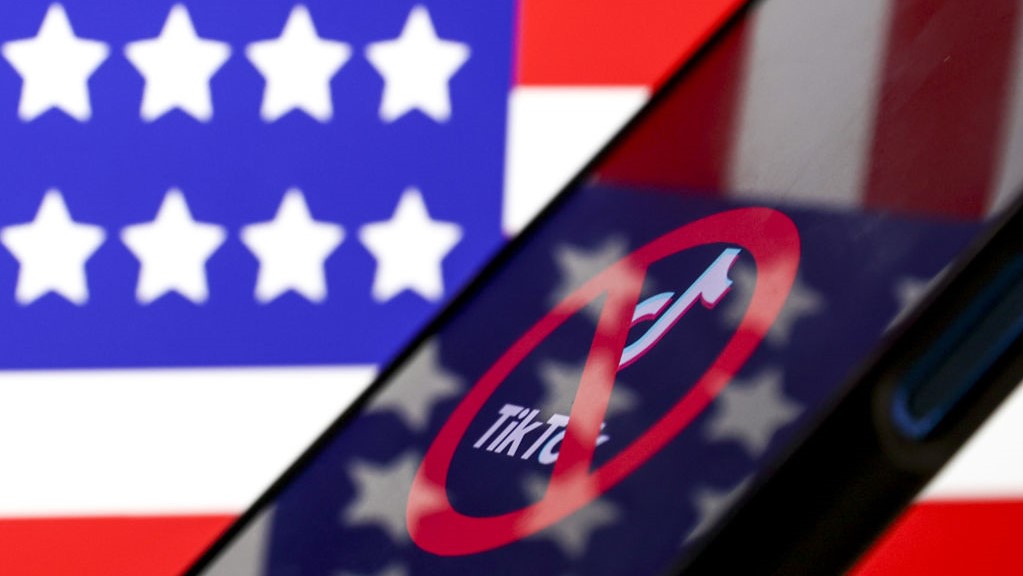Montana TikTok ban: digital rights groups join the fight against "unconstitutional" bill
Montana is set to become the first US state to ban TikTok from all devices

Sign up for breaking news, reviews, opinion, top tech deals, and more.
You are now subscribed
Your newsletter sign-up was successful
Digital rights advocate groups have officially joined the legal fight against a proposed Montana TikTok ban.
After being approved in May, the "unconstitutional new restrictions" are set to be enforced on January 1, 2024. This will make Montana the first US state to completely ban TikTok, making the use of a VPN service a necessity to keep accessing the popular video-sharing app.
The social media company and five TikTok creators have decided to challenge the legislation's lawfulness in court. Here's how digital rights advocates are backing up their fight.
The case against Montana TikTok ban
The fate of TikTok, its creators, and viewers is on a ticking clock in Montana and so are citizens' rights to free speech and access to information. That's why the American Civil Liberties Union (ACLU) and the Electronic Frontier Foundation (EFF) filed an amicus brief on August 11 in support of the on-going lawsuit.
"Once again, Montana’s legislature seeks to unnecessarily insert itself into the daily life of ordinary Montanans," said Alex Rate, legal director with the ACLU of Montana. "We will not stand idly by while the government adopts unconstitutional new restrictions on the ways that we communicate with one another."
According to experts, imposing such a blanket imposition will make it impossible for users to speak and associate via TikTok. This is a clear violation of the First Amendment and "it should be halted," said Patrick Toomey, deputy director of ACLU’s National Security Project.
"Many Montanans use TikTok to communicate with local and global audiences," added David Greene, EFF’s Civil Liberties Director. "The state must not violate their rights by banning this speech platform."
Sign up for breaking news, reviews, opinion, top tech deals, and more.
EFF joined @ACLU & @ACLUMT to file a brief today challenging Montana’s unconstitutional TikTok ban. Many Montanans use TikTok to communicate with local and global audiences; the state must not violate their rights by banning this speech platform. https://t.co/rcqFIGnB5sAugust 11, 2023
Tensions between the US and the Chinese social media giant have reached a new high lately. A wave of provisions forbidding its use on government devices spread throughout the Western world at the start of the year. These were followed by a federal bill known as the RESTRICT Act (currently still under discussion) thought to be able to fast-track a TikTok ban for all Americans.
Human rights campaigners and internet experts have long been calling the government to scrap such plans. From curbing people's digital rights to surveillance, censorship, and online security risks, the consequences of making TikTok illegal will soon be a grim reality for people in Montana.
The amicus brief urges the court to see how the law "triggers an especially exacting form of First Amendment scrutiny." Campaigners also highlighted how the provision will disproportionately affect minority groups, citing examples of how TikTok currently plays an "outsized role" in fostering solidarity online towards specific social issues.
EFF and ACLU are only the most recent actors to step in and back up the lawsuit seeking to block the Montana ban. On august 8, two major tech groups (NetChoice, a national trade association, and the Chamber of Progress, a tech-industry coalition) released a joint court filing stating that the proposed ban "ignores and undermines the structure, design, and purpose of the internet."
While we hope that the court will keep in consideration experts' arguments, we invite readers to head on our page to learn how to access TikTok with a VPN in case the ban will eventually come into force.

Chiara is a multimedia journalist committed to covering stories to help promote the rights and denounce the abuses of the digital side of life – wherever cybersecurity, markets, and politics tangle up. She believes an open, uncensored, and private internet is a basic human need and wants to use her knowledge of VPNs to help readers take back control. She writes news, interviews, and analysis on data privacy, online censorship, digital rights, tech policies, and security software, with a special focus on VPNs, for TechRadar and TechRadar Pro. Got a story, tip-off, or something tech-interesting to say? Reach out to chiara.castro@futurenet.com